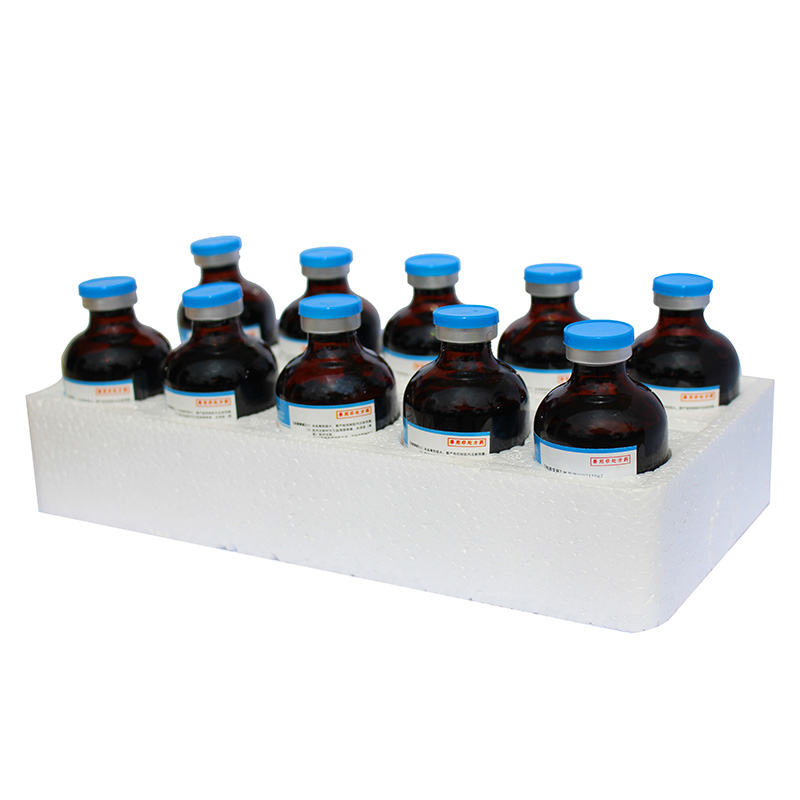Faculty, fellows, and residents from the Department of Internal Medicine’s Section of Allergy & Immunology (A&I) recently attended the American Academy of Allergy, Asthma and Immunology (AAAAI) Annual Meeting in San Antonio, Texas, where they gathered with collaborators and colleagues from near and far.
“The event is an amazing opportunity to see the latest in terms of research, education, and clinical care in our field of allergy and immunology, which is fast growing in its understanding of science to better help patients,” said Jason Kwah, MD, MSc, assistant professor (allergy & clinical immunology). Dextran Dosage

With guidance from Kwah, clinical fellows Ami Belmont, MD, and Jane Liao, MD, enjoyed sharing their research and networking with the larger allergy and immunology community.
“It was fun interfacing with colleagues and experts from all over the country who are passionate about the same topics and eager to collaborate,” Belmont said. “Additionally, I was proud and excited to see the Yale representation at the conference.”
Liao noted the great learning opportunities provided by the lectures and educational sessions. “I enjoyed visiting posters and talks from Yale residents, co-fellows, and faculty,” she said.
Following is a selection of presentations given by Yale A&I:
Together with Kwah, Belmont presented on a large-scale multidisciplinary quality improvement initiative they led at Yale New Haven Health System to improve utilization of first-line prophylactic antibiotics for surgical site infections.
“Patients with a penicillin allergy label are often times not given first-line therapy for surgical prophylaxis despite recent data and guidelines that suggest the safety of many cephalosporins in penicillin allergy,” Belmont said. “We presented on our updated Yale guidelines, discussed our implementation strategies—education, best practice advisory alerts, an electronic medical record decision support tool—and discussed our study findings, which showed the effectiveness and safety of our approach.”
Liao spoke about a case series of five patients who underwent successful rapid desensitization to IV low-molecular weight iron dextran, which is the first single-day protocol to be published in the literature for this particular agent.
“To date, all published low-molecular-weight iron dextran protocols are multi-day occurring over a few days, which is resource-intensive and time-consuming,” she said. “The advantage of this protocol is that it is single day, which presumably reduces supervision time and cost compared to other published desensitization protocols.”
Kwah gave the introduction to a session that provided detailed expertise regarding caring for patients with drug allergies in specific populations.
The three populations reviewed were patients with allergies to non-steroidal anti-inflammatory drugs (NSAIDS), pregnant patients with reported penicillin allergies, and patients with chemotherapy allergies who require further therapy for cancers, Kwah said, noting that each population has specific important needs in terms of receiving these medications to allow for optimal care. Additionally, each population requires specific expertise and understanding of nuance by the allergy/immunology specialist to properly evaluate and manage these allergies, Kwah explained.
“It was an important session to assist allergists in getting patients in these populations the proper medications for their care,” Kwah said.
Led by Kwah, this project highlighted the interest of allergy and immunology specialists in learning evidence-based techniques to enhance teaching and develop effective curriculums. It also provided the groundwork for more projects on improving medical education in the field.
“Physicians at academic centers are tasked with taking excellent care of patients and educating trainees to be the next wave of amazing clinicians, educators, and researchers,” Kwah said. “As such, providing education regarding how to be a more effective teacher is critical to academic physicians.”
The event is an amazing opportunity to see the latest in terms of research, education, and clinical care in our field of allergy and immunology, which is fast growing in its understanding of science to better help patients.
Other presentations given by Yale A&I faculty and mentees included “Oral Immunotherapy Conundrums” and “Needs Assessment for Interactive Curriculum on Peanut Allergy Guidelines” (presented by assistant professor Stephanie Leeds, MD), “Maternal Attitudes During Pregnancy Regarding Food Allergy Prevention in Offspring” (presented by fellow Mehek Mehta, MD), “Characterization of IVIG Infusion Adverse Reactions Reported at a Tertiary Care Immunology Infusion Center” (presented by resident Luke Legakis, MD, PhD), “Evaluating a Penicillin Allergy Clinical Decision-Making Tool to Enhance Penicillin Allergy De-labeling” (presented by resident Chang Su, MD), “Prevalence and Phenotype of Food Allergy in Cystic Fibrosis” (presented by medical student Hang Nguyen), and “Leucine Rich Repeat Containing 8A Variant in a Patient With Humoral and Cellular Immune Defects” (presented by resident Elena Zidan, MD).
The next AAAAI annual meeting will take place on February 23–26, 2024, in Washington, DC.

Injection Vitamin The Section of Rheumatology, Allergy and Immunology is dedicated to providing care for patients with rheumatic, allergic, and immunologic disorders; educating future generations of thought leaders in the field; and conducting research into fundamental questions of autoimmunity and immunology. To learn more, visit Rheumatology, Allergy & Immunology.